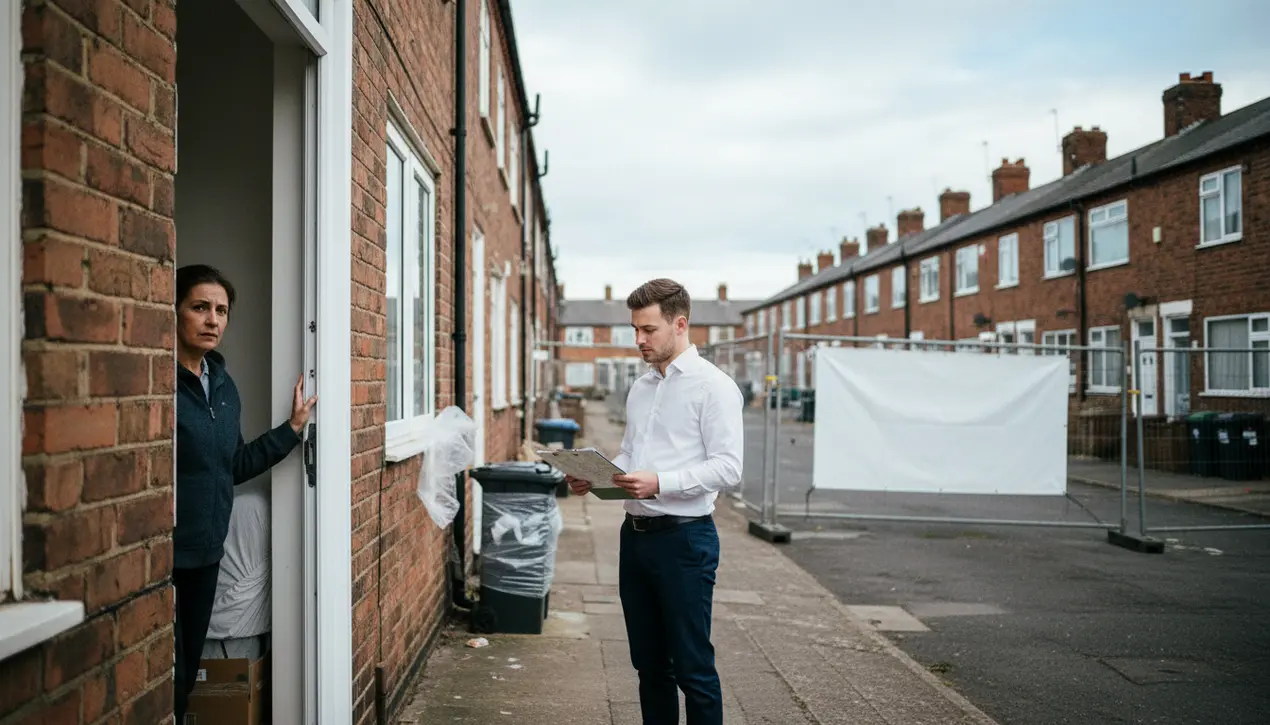- News
- real-estate
- ‘Are you building communities or just houses?’: human cost of Birmingham council’s plans for Druids Heath estate

Otherreal estateHousing Market Trends
‘Are you building communities or just houses?’: human cost of Birmingham council’s plans for Druids Heath estate
AN
Anna Wright
2 hours ago7 min read1 comments
When Xylia Legonas opened her door in 2023, she was on the cusp of financial freedom, just years from owning her home outright and having recently completed costly refurbishments after a fire. The visitor’s question about the Druids Heath regeneration project felt like a physical blow.'The first thing I thought: ‘Don’t tell me you’re going to knock my house down’,' she recalls, the memory still sharp. The confirmation was a sentence of displacement, upending a life meticulously built.Her story is not an isolated incident but a single thread in a larger, grim tapestry being woven by Birmingham City Council, a plan that proposes demolishing 1,800 properties under the banner of progress while offering a pitifully small fraction of guaranteed affordable replacements. This is not merely a housing policy; it is a profound social failure, a case study in how technocratic planning, devoid of feminist and empathetic principles, systematically dismantles the very communities it purports to serve.The central, haunting question posed by residents—'Are you building communities or just houses?'—cuts to the heart of the matter. It echoes the critiques of urban theorists like Jane Jacobs, who warned against the brutalist logic of planners who see numbers on a map instead of networks of human connection.The council’s vision, with its paucity of secure affordable housing, appears designed not for the current, predominantly working-class residents, but for a future, wealthier demographic, effectively engineering a social cleanse. This is a pattern seen from the Heygate estate in London to similar regenerations across the UK, where the human cost is consistently externalized.The trauma of compulsory purchase orders, the severing of multi-generational support systems, and the psychological toll of instability are the real metrics of this project, metrics that never appear on a council balance sheet. For single mothers, elderly residents, and low-income families, the promise of 'right to return' is often a cruel mirage, as temporary relocation becomes permanent and new market-rate properties are financially out of reach.The personal is political here: a home is not just an asset but a repository of memory, security, and identity. To treat it as a disposable widget in a grand redevelopment scheme is to fundamentally misunderstand—or disregard—the human need for belonging and place. The council must be held to account, not just on the number of bricks and mortar, but on its duty to foster social cohesion and protect its most vulnerable citizens from the collateral damage of its ambitions.
#featured
#Birmingham
#Druids Heath
#regeneration
#demolition
#affordable housing
#community displacement
#council plans
Stay Informed. Act Smarter.
Get weekly highlights, major headlines, and expert insights — then put your knowledge to work in our live prediction markets.
Related News
Comments
Loading comments...
© 2025 Outpoll Service LTD. All rights reserved.